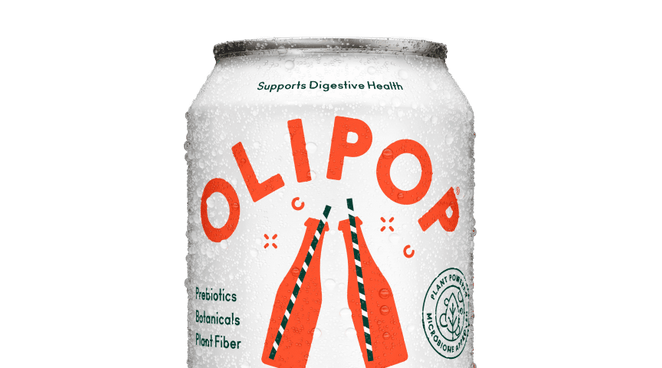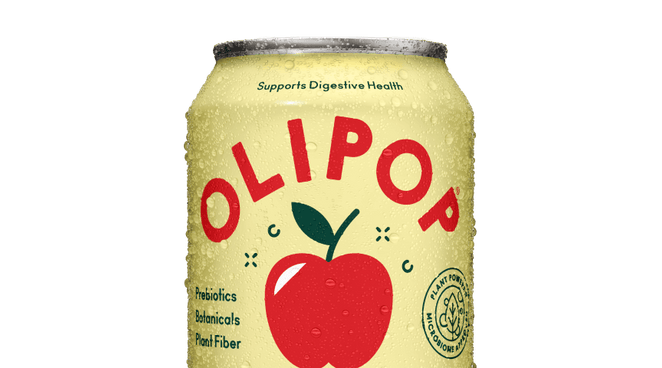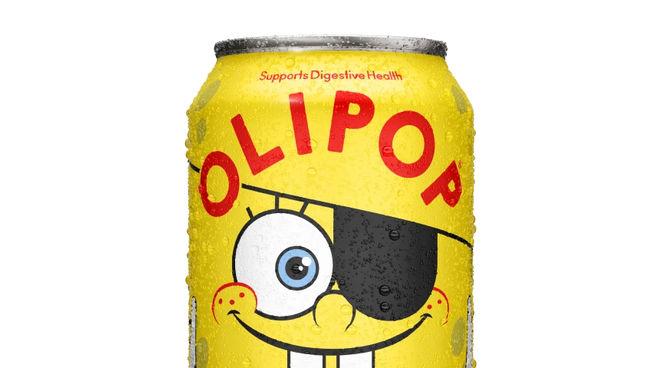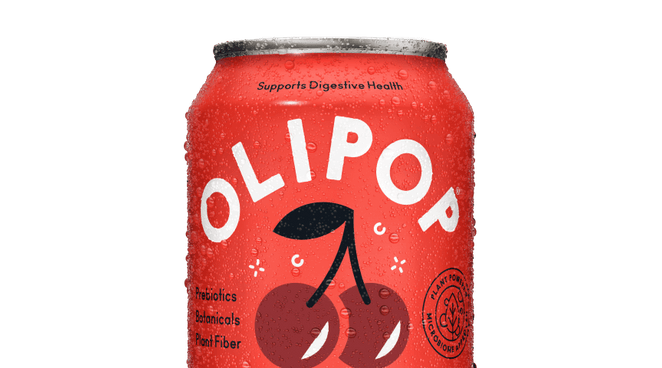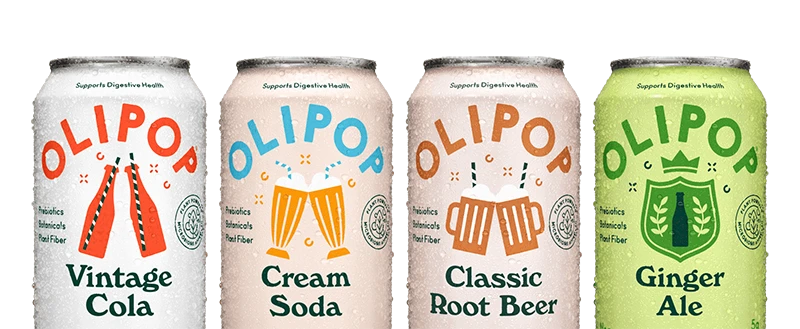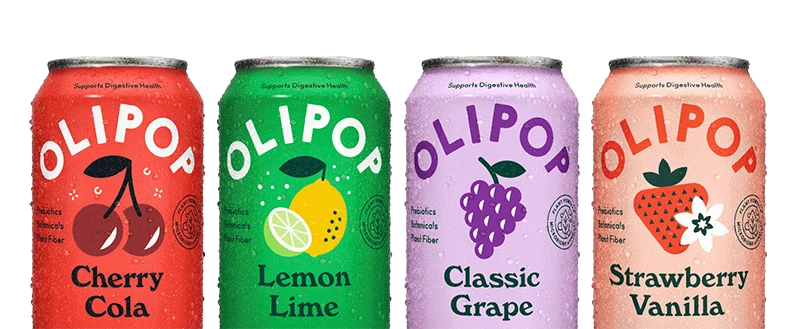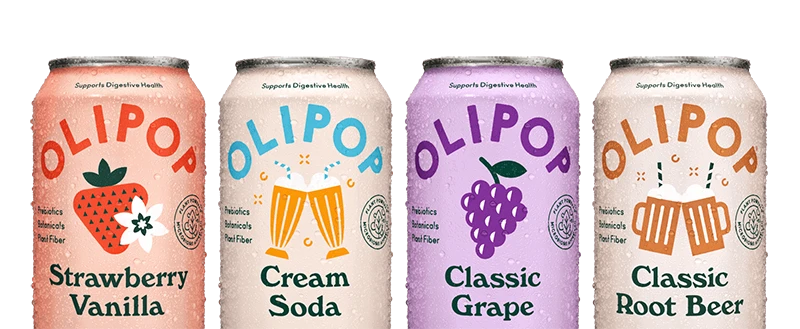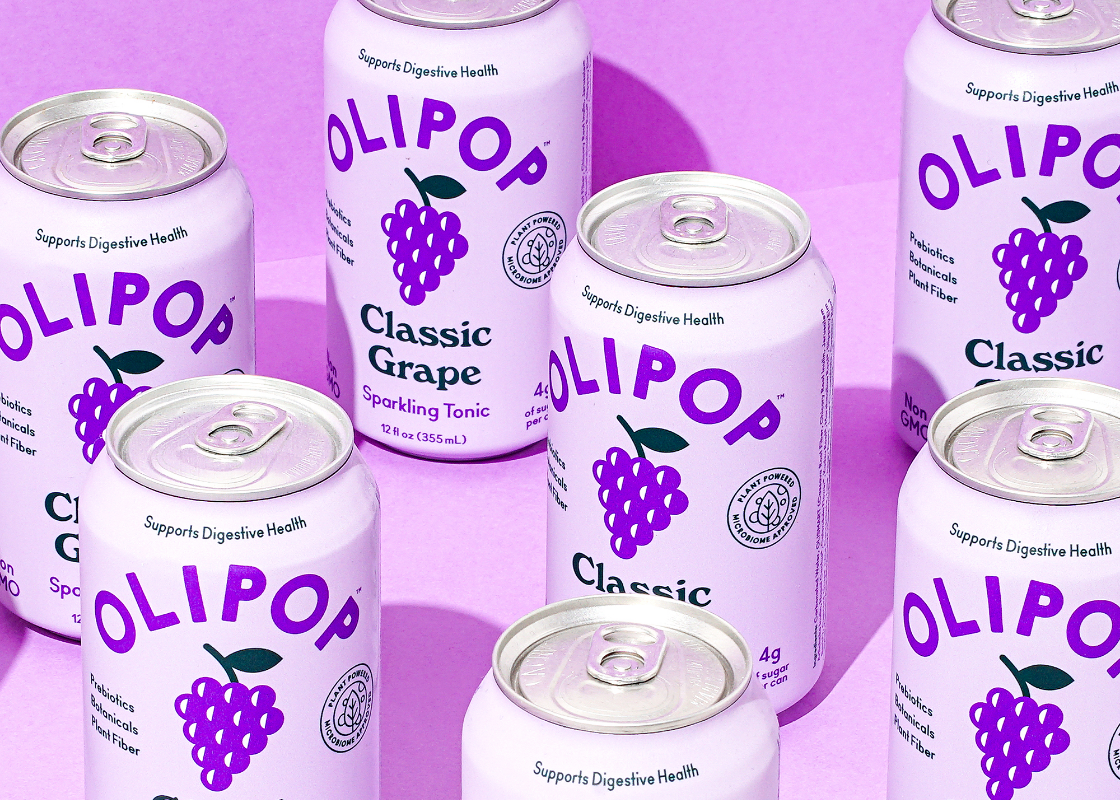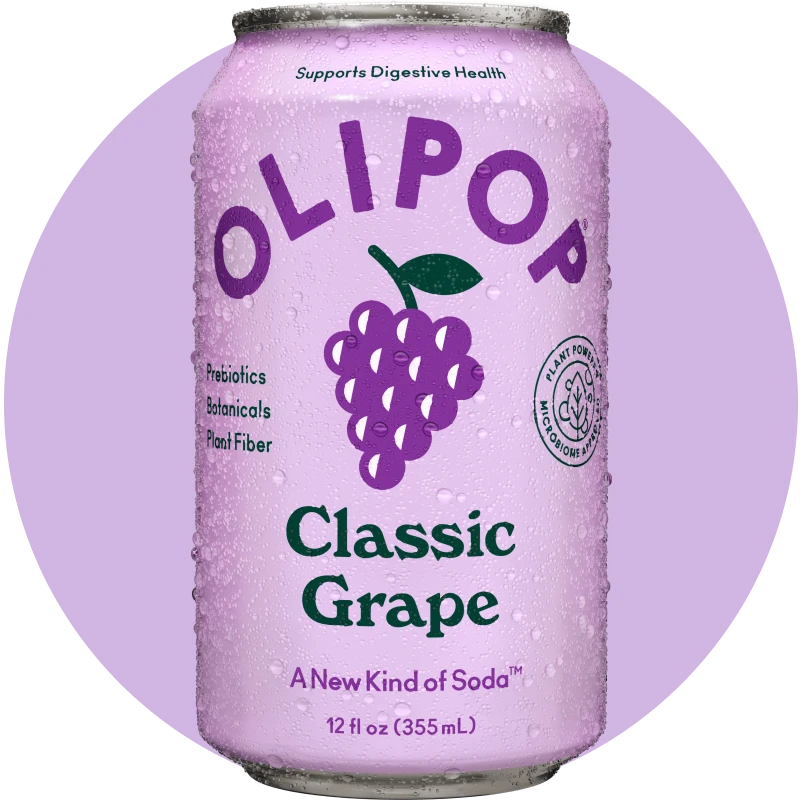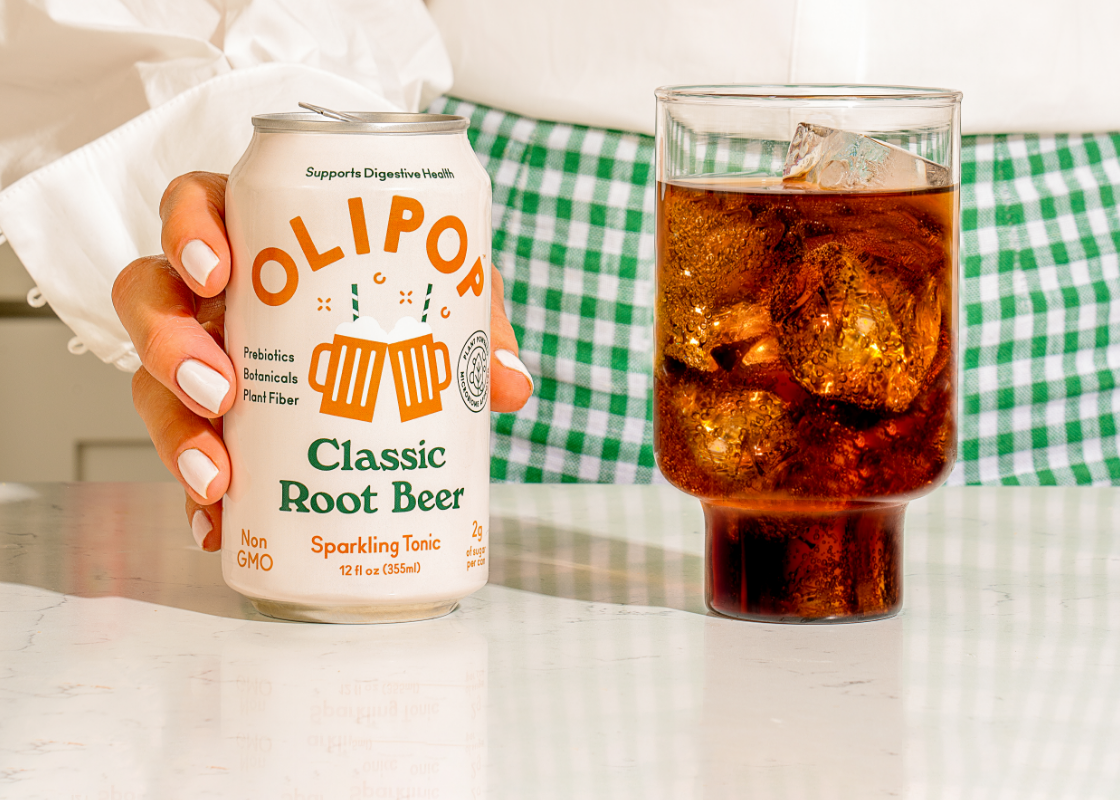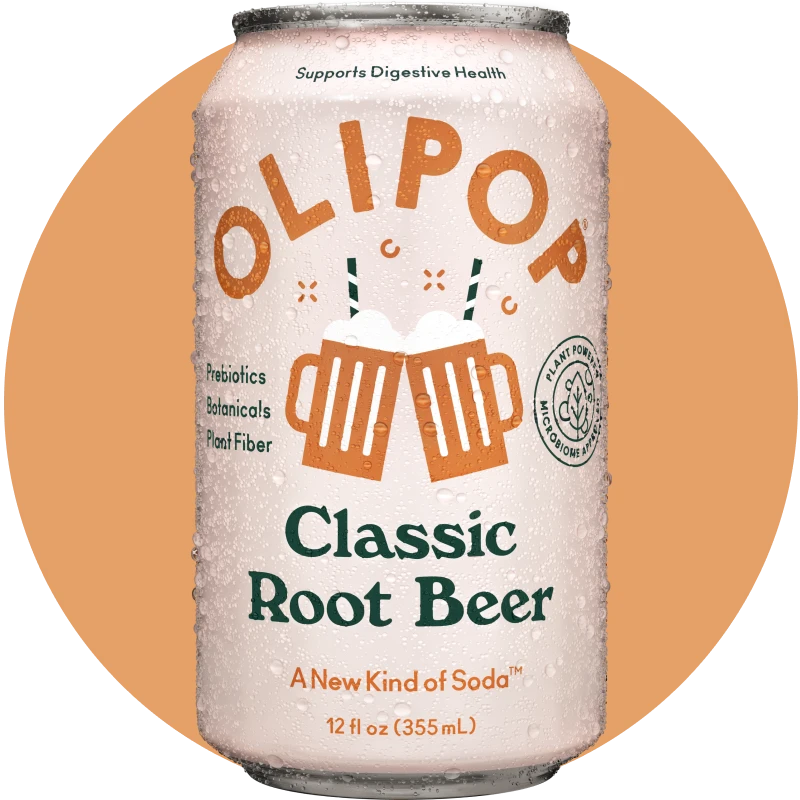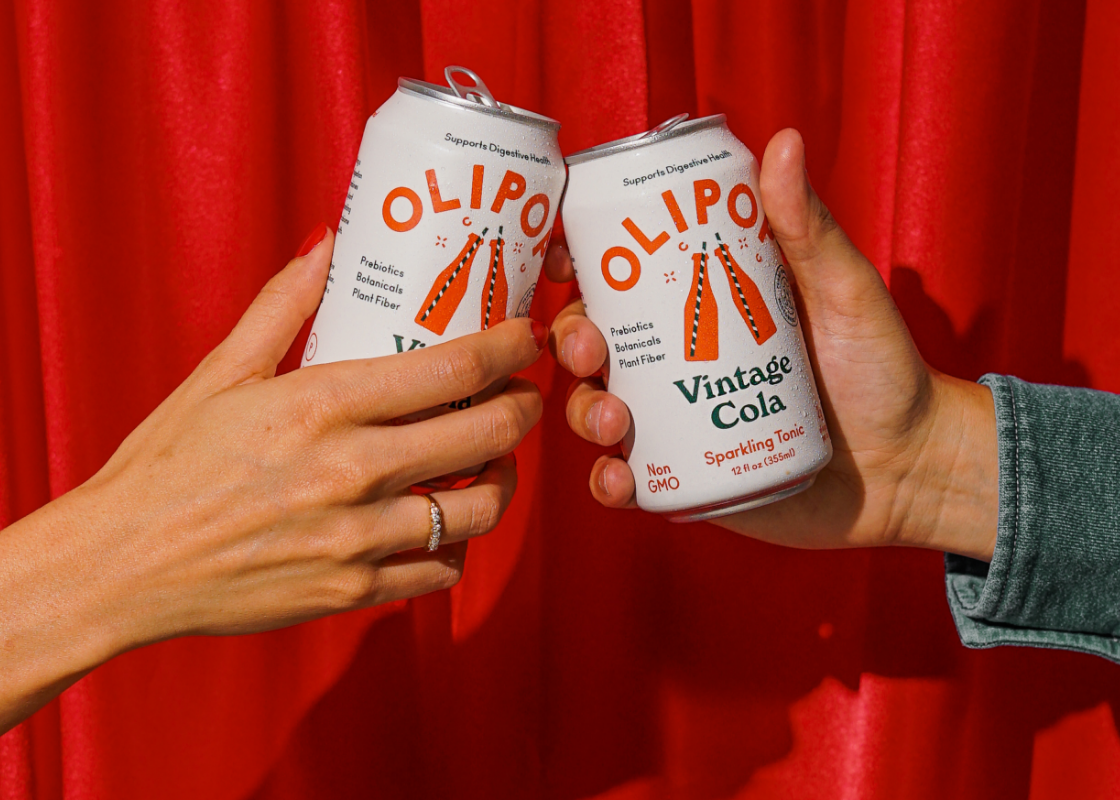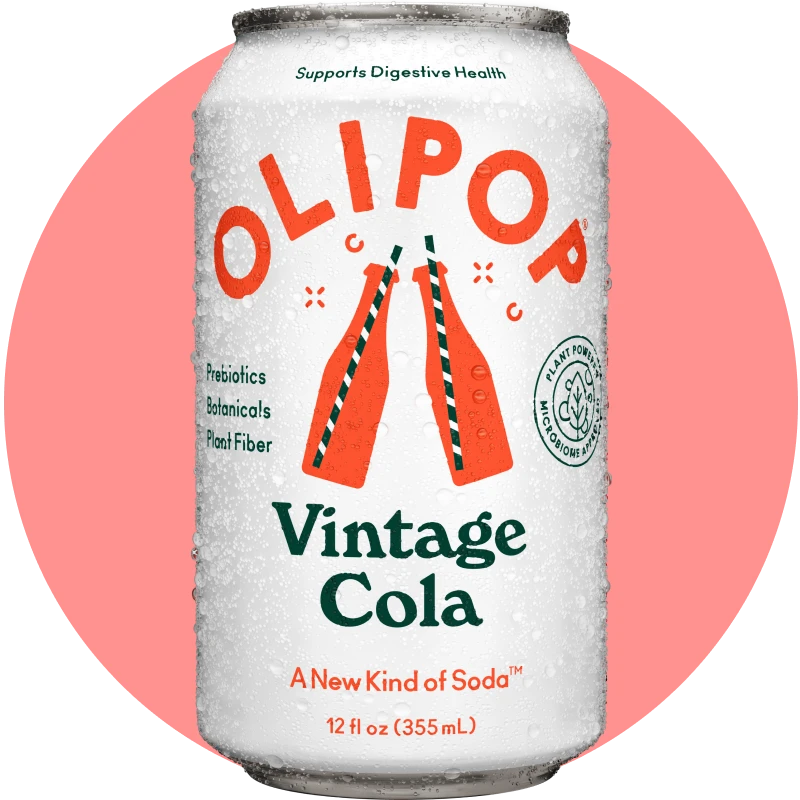These days, most of us want more than just a sweet taste when it comes to our beverage of choice. Whether it’s supporting digestion, delivering an energy boost, or filling a nutritional gap, we want a beverage that does more. In other words, what can this drink do for me?
This shift in mindset isn’t all that surprising when you look at the big picture. More and more people are paying attention to the role food and drink play in overall health. And the beverage industry? It's been taking notes.
This craving for better-for-you alternatives has led to the rising popularity of a new category of drinks: functional beverages.
Here at OLIPOP, we’ve been right at the center of this shift, reimagining what soda can be by crafting a beverage that tastes nostalgic and refreshing, while also featuring a blend of functional ingredients that support your digestive health. But let’s back up. What makes a beverage “functional” ... and does that mean it’s healthy? Let’s take a closer sip.
What Is a Functional Beverage?
At its core, a functional beverage is any drink that offers benefits beyond basic hydration. This is often done by adding ingredients—such as vitamins, minerals, prebiotics, probiotics, or adaptogens— to support certain functions in the body.
For example, a functional beverage might offer:[1]
- An energy lift
- Enhanced exercise performance
- Stress support
- Help falling asleep
- Essential vitamins and minerals
- Digestive health support (as is the case with one particular beverage brand *wink wink*)
And while that definition might sound simple, the category itself? Not so much. It’s a broad, loosely defined space. As long as a drink offers some kind of benefit beyond thirst-quenching, it could be considered “functional.”
Types of Functional Beverages
From your morning latte to your post-workout protein shake, there’s a good chance you’re already sipping on functional beverages. Here are just a few of the types that fall under the umbrella:
- Coffee, tea, or other caffeinated beverages
- Mushroom-infused coffee
- Sports & performance drinks
- Energy drinks
- “Smart” drinks
- Fruit juices, smoothies
- Enhanced waters
- Kombucha
- Prebiotic & probiotic sodas
- Collagen drinks
- And the list goes on...
Within this list, common functional ingredients you’ll find include:
- Adaptogens (like ginseng or ashwagandha)
- Herbal extracts (like ginger or turmeric)
- Caffeine
- Protein
- Fiber
- Probiotics
- Vitamins & minerals
- Antioxidants
- Electrolytes
With so many formats and functions, it’s no wonder the space is growing fast. But not all functional drinks are created equal.
Functional Does Not Always Mean Healthy
Let’s get one thing straight: just because a beverage has a “function” does not always mean it’s a healthy choice. Plenty of functional drinks still pack a sugary punch, some even rivaling traditional sodas in terms of added sugar content.
Therefore, it's important as a consumer to don your detective hat to decipher the difference between your beverage choices. Take a look at that back ingredient label. What ingredients are included? How much added sugar is there? While that splash of vitamin C or hint of ginseng may sound appealing, it doesn't cancel out 30+ grams of added sugar.
Functional Beverages Throughout History
Now you might be saying, "Haven't functional beverages existed forever?" And you're not wrong! After all, humans have been sipping tea for thousands of years and benefiting not only from its warmth and aroma but also from the spices and herbs in the blend. Same with coffee, which has long been prized for its energy-supporting powers.
But here’s the twist: while functional beverages are nothing new, the functional beverage category is. It’s not just about having a functional effect anymore; it’s about being intentionally designed to deliver one. And the category is exploding as we add function to all manner of beverages.
So how did we get here? A few key shifts helped fuel the rise of this new category:
- A growing awareness of diet-related health concerns prompted many consumers to seek alternatives to sugar-sweetened beverages and empty-calorie drinks.
- Interest in ingredient transparency and science-backed functionality became more mainstream. In other words, people started reading labels and caring about what those ingredients actually did.
- And frankly, people still want their drinks to taste good. So, the challenge became: how do we keep the flavor and add something meaningful?
Enter this new era of functional beverages: formulated, flavorful, and aligned with what today’s consumers are looking for.
What Makes OLIPOP a Functional Beverage?
That’s where OLIPOP comes in. When we first launched, soda wasn’t exactly known for being a “functional beverage.” But our Co-Founder, CEO, and Formulator Ben Goodwin believed it could be. Ben loved soda as a kid, and he knew millions shared that same nostalgia. With most Americans falling short of their daily fiber intake, Ben set out to create a version with more fiber and less sugar than traditional soda.
The result? A delicious functional beverage with 6 to 9 grams of fiber and 2 to 5 grams of sugar, delivering digestive health benefits without sacrificing the classic soda experience you crave.
So yes, functional beverages go way back. But today’s movement? It’s new, it’s intentional, and OLIPOP is proud to be leading the charge.
Functional Beverages: The Takeaway
So, there you have it. Functional beverages are beverages with benefits beyond hydration, but that doesn’t always make them the healthiest choice. It’s still important (as with all your food and beverage decisions) to keep an eye on the back label and to choose drinks that truly support your health goals.
We’re proud to offer a soda that brings flavor and function together in one craveable can, for a beverage you can feel good about.
Sources:
- Raman, M., Ambalam, P., & Doble, M. (2019). Probiotics, prebiotics, and fibers in nutritive and functional beverages. In Elsevier eBooks (pp. 315–367). https://doi.org/10.1016/b978-0-12-816842-4.00009-5
- Functional beverages are drinks that offer more than just hydration. They’re made with ingredients that support specific functions like digestion, energy, or recovery.
- Not all functional drinks are created equal. Many still contain high sugar levels, so it’s key to read labels and look for options that support your health goals.
- OLIPOP helped lead the charge into modern functional soda by blending nostalgic flavors with functional ingredients to support your digestive health.


